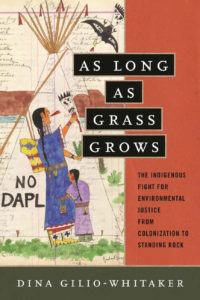 The American environmental movement is rooted historically in ideas about pristine wilderness, free from human presence, that replicate colonial patterns of white supremacy and settler privilege. Native-led movements are changing the script. (UU World Magazine) DINA GILIO-WHITAKER | 3/1/2020 | SPRING 2020
The American environmental movement is rooted historically in ideas about pristine wilderness, free from human presence, that replicate colonial patterns of white supremacy and settler privilege. Native-led movements are changing the script. (UU World Magazine) DINA GILIO-WHITAKER | 3/1/2020 | SPRING 2020
Historians of the environmental movement often locate the movement’s genesis in mid-nineteenth-century literature, most commonly invoking writers such as Ralph Waldo Emerson, Henry David Thoreau, and John Muir. After Emerson published Nature in 1836, a new mystical and philosophical movement called Transcendentalism began to emerge in Boston. The Transcendentalists believed that a direct experience with the divine could be attained through intimate interaction with nature. While Emerson and Thoreau were paving fresh intellectual ground in the East, the artist George Catlin (who was unconnected to the Transcendentalists) was traveling out west documenting the last of the “wild” Indian tribes, becoming famous for the hundreds of paintings that are now his legacy and for beginning a national dialogue on the need for national parks. In Letters and Notes on the Manners, Customs, and Condition of the North American Indians (1841), Catlin lamented what he believed was the beginning of the extinction of the buffalo and the tribes who depended on them. He proposed that the U.S. should create a “Nations’ park containing man and beast, in all the wild and freshness of their nature’s beauty!” While the idea for a national park was not yet taken seriously, a growing national angst about modernity made conditions ripe for it by the early 1870s.
Finish reading the article here: https://www.uuworld.org/articles/problem-wilderness
Leave a Reply